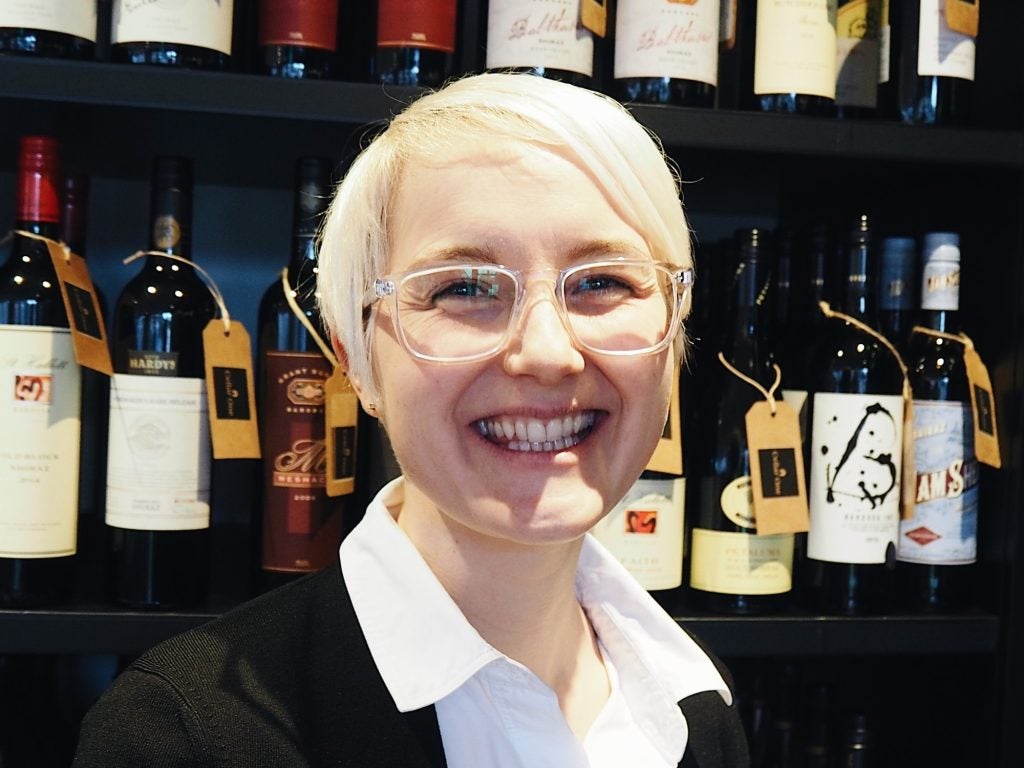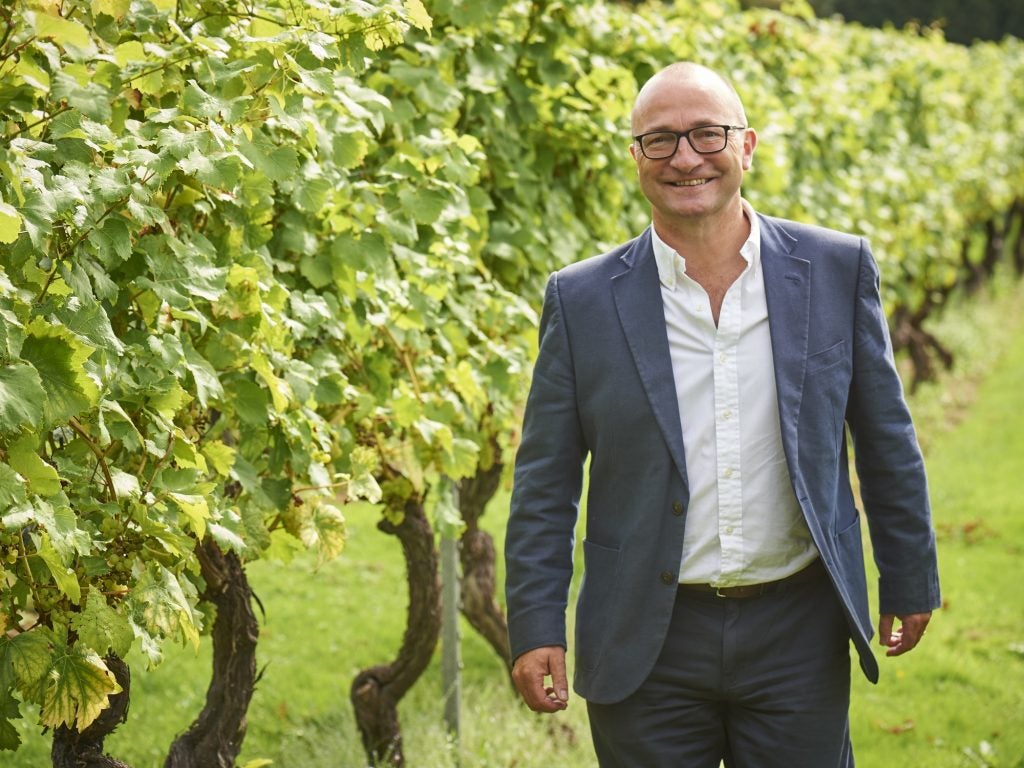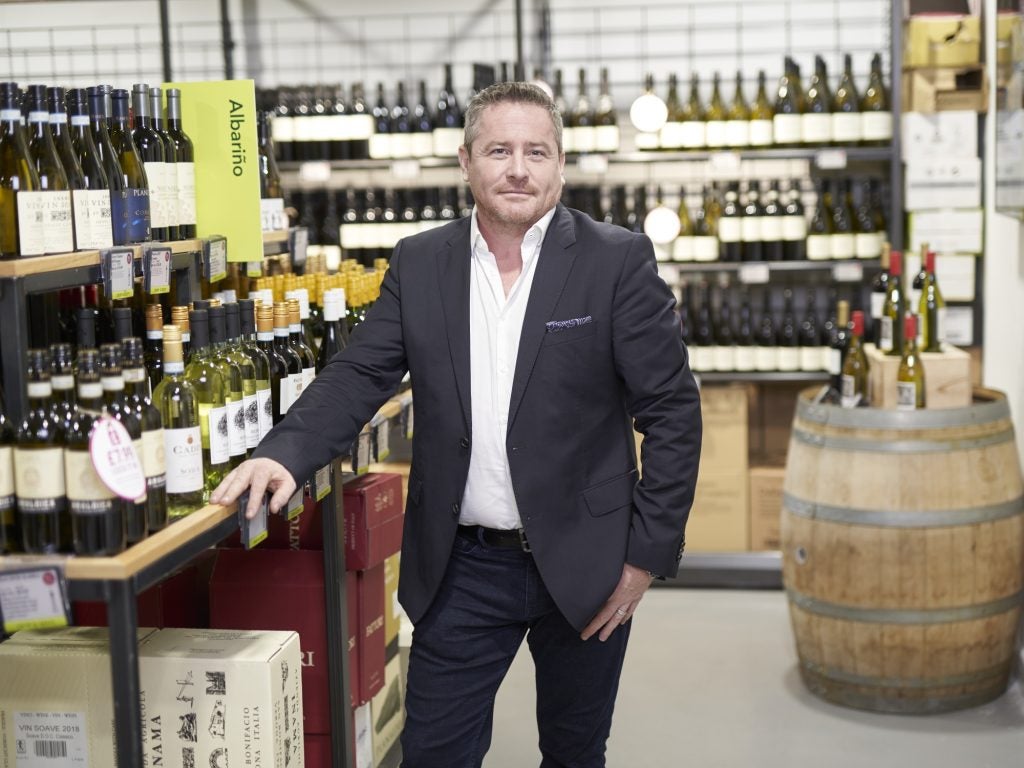As we hurtle towards the end of the year, Just Drinks has spoken to senior figures at the beverage sector’s biggest names to get the inside track on what fills them with optimism and what is keeping them awake at night. In this piece, some of the wine industry’s major players have their say on what’s to come in 2023.
Caroline Thompson-Hill – Regional managing director for Europe, Accolade Wines

Just Drinks: What are you most excited about (from a business standpoint!) heading into 2023 and why?
Caroline Thompson-Hill: I’m particularly excited to continue developing our incredible innovation pipeline and sustainability efforts.
We hear constantly from customers and consumers that the wine category isn’t innovative enough. This is why we’re so focused on insight-led innovation, to ensure we’re relevant and engaging for younger adults. We’ve already had a successful year on innovation with new launches across Wise Wolf and B. Ink landing in the market to name a few, with new products hitting shelves in early 2023.
We also expect to see more exciting packaging innovation coming to the category as we look to move consumers into different formats. We have ambitious targets to advance circular economy packaging across our entire portfolio and in all new innovations.
JD: What concerns you the most, and what are the biggest challenges you think you will face?
CTH: Rising inflation and a recession on the horizon are of course challenging for a discretionary category like ours. Household budgets will be tight for many over the next couple of years, but people will still want to treat themselves. Food and drink can offer affordable luxuries.
It comes down to ensuring we have the right range that can flex to meet the needs of different occasions and consumers, from entry level to premium. Value for money is much more important than simply lower prices.

US Tariffs are shifting - will you react or anticipate?
Don’t let policy changes catch you off guard. Stay proactive with real-time data and expert analysis.
By GlobalDataJD: How do you think input cost inflation will impact Accolade Wines in the coming 12 months?
CTH: One of the biggest cost increases affecting wine is glass, as energy costs drive up prices.
The upshot of the rising cost is that it might be the catalyst the industry needs to move towards more sustainable formats. Bag-in-box has lots of environmental and practical benefits with a lower carbon footprint, better value for money and keeping the wine fresher for longer. But the format has suffered from outdated negative perceptions in the UK. Many of our brands are already available boxed but the products don’t have the space and visibility in-store. We are on a mission to change that!
JD: What are the biggest ongoing supply chain issues you are facing?
CTH: Inflation, coupled with a cost-of-living crisis that makes the business environment very volatile. Going forward we also think it’s prudent to expect, and therefore plan for, a certain amount of disruption due to industrial action taking place across different industries and geographies.
Shipping reliability is still at a far lower level than pre-covid times, but we are cautiously optimistic on this front, as the reliability has slowly been creeping up over the past two months, and we hope it continues on this trajectory.
JD: How do you see consumer demand across your geographic markets next year?
CTH: We expect shoppers to trade down to cheaper products or to reduce frequency and basket size. On the other side, we also expect those shoppers relatively unaffected by financial concerns to continue driving the premium sector. Our strength is in our portfolio, and we have all price points covered – we also want to hold onto our shoppers, which is where some of our brand tiering can help to keep consumers within our brands.
New consumers who entered the category last year tend to be younger and have less money to spend, so it’s essential to continue to appeal to this demographic. Shoppers also look for brands they trust for quality and value.
JD: What other consumer trends do you expect to drive your innovation and NPD pipeline in the next twelve months?
CTH: There is the long-term trend to moderation. No- and low-alcohol options have vastly improved, both in the range of products available and in the quality, but wine has fallen behind compared to beer and spirits – often suffering from negative taste perceptions. The launch of &Then and Hardys Zero is set to change that.
Simon Doyle – managing director of Concha y Toro UK

JD: What are you most excited about heading into the New Year?
Simon Doyle: We continue to invest strongly in our market-leading wine brands, and we have some exciting plans for further consumer engagement in 2023. We’ll also have some brand new products to bring to market, and a few new wines from familiar, well-loved brands too.
JD: What concerns you the most, and what are the biggest challenges you think Concha y Toro will face?
SD: The two areas which will need the most focus are tighter levels of disposable income generally, and cost inflation, which is particularly relevant to materials. Brands have an important role to play in adverse situations; as we saw during the pandemic, shoppers become more risk averse and look to brands to give them reassurance.
JD: How do you think input cost inflation will impact your business in the coming 12 months? What steps are you taking to mitigate the impact of that cost pressure? Will you look to increase prices again?
SD: Material cost inflation is a major issue as well as excise duty where significant increases are forecast. Further administrative hurdles in the shape of PRNs and the DRS program simply add to an already challenging mix.
Our first priority is to find ever more efficient ways of navigating these challenges, but in order to continue to operate in a sustainable way there will be certain costs which inevitably have to be passed on to the consumer.
JD: What are the biggest ongoing supply chain issues you are facing, and how will you seek to resolve/combat them?
SD: Material supplies and global shipping are two of the most significant issues, therefore having a responsive production capacity becomes ever more important. Supplier relations with key suppliers like Encirc and Greencroft are central to managing this, whilst aligning with key retail partners on their plans to ensure the right levels of availability.
JD: How do you see consumer demand across your geographic markets next year?
SD: Many markets are affected by inflation, although as a truly global business there are always opportunities that arise at the same time as other regions face challenges. Our strategic evolution has become more consumer-centric, anticipating shopper needs and having the right portfolio at all price points to meet it.
JD: On which key ESG issues do you expect to increase investment in 2023 and why?
SD: We are very proud to have secured B Corporation certification in 2021, one of fewer than 30 wine companies worldwide to have met this stringent qualification. The initial certification highlighted areas where the business is doing well in sustainability terms, but also where we can and must improve – it is like a health check for the business.
JD: What consumer trends do you expect to drive your innovation and NPD pipeline in the next twelve months?
SD: Sustainability has become a non-negotiable for any FMCG business, and a key pillar of our strategy – expect to see new product and fresh formats which respond directly to this. We need to work hard to recruit the next generation of wine shoppers and cater for diversifying tastes, winning hearts and minds across missions and occasions, as well as continuing to give shoppers the confidence to trade up – our more premium brands have an ever-greater role to play in this.
Ants Rixon – CEO of Enotria&Coe

JD: What are you most excited about next year?
Ants Rixon: We will be kicking of the year with our Annual Tasting and we are excited to welcome more of our producers to the UK who were still not allowed to travel internationally in 2021. This tasting will be a key launch for a few new producers, and an opportunity to promote our sustainability goals through a panel discussion co-hosted with the Sustainable Wine Roundtable.
JD: How do you think input cost inflation will impact Enotria&Coe and the rest of the wine industry in the coming 12 months?
AR: So far, the trade has remained relatively buoyant in the face of the cost-of-living crisis. Corporate hospitality budgets for the full year were set in stone before the true extent of the cost-of-living crisis became apparent, which has helped the more premium end of the market where Enotria is dominant, to remain resilient.
We have done our utmost to support our customers with consistent pricing throughout the year, resisting our obvious requirement to increase prices with every inflationary measure announced by the government. We believe this is a crucial element of being a reliable partner to our customers, as the stability this has afforded them in an otherwise challenging market has made it easier for them to plan and budget.
We will have to push through price changes in February 2023. We have done our utmost to mitigate the effects of this by communicating consistently and transparently with our customers about the pinch points we are facing.
JD: What are the biggest ongoing supply chain issues you are facing, and how will you seek to resolve/combat them?
AR: Supply chain issues have been a daily challenge since 2020, but this year they have been exacerbated by the energy surcharge, glass shortages, labour shortages and even outright unavailability of raw materials or components made in Eastern Europe owing to the invasion of Ukraine. More recently, we have even struggled to get hold of new laptops and mobile phones, and we even faced some delays in receiving our new fleet of vehicles.
As frustrating as it is, the factors behind these issues are so global that there isn’t much that any individual business can do to combat them. We have worked hard on strengthening our relationships with suppliers, and particularly with hauliers to keep channels of communication about delays open and transparent.
JD: On which key ESG issues do you expect to increase investment in 2023 and why?
AR: 2022 has been a pivotal year for Enotria&Coe in terms of our sustainability journey. We signed up to Harpers Sustainability Charter, published our own sustainability barometer in October and hosted a sustainability forum.
In 2023 we have outlined clear targets in reducing our environmental impact, promoting supplier compliance with our goals, reducing packaging and waste, working towards more clearly defined and more ambitious charitable giving targets, more actively and consistently promoting employee wellbeing and gaining formal certification for our efforts through a series of audits.
Each of these will require significant investment and dedicated resource, but we anticipate that some of the most intensive areas will be new systems and software, and also packaging.
JD: What do you think will happen to consumer demand next year, will we see some price elasticity / trading down?
AR: In the past, periods of economic downturn have seen retail sales become more dominant, as people choose to drink at home rather than out in the trade. Next year’s economic downturn may well be different because the UK market is still very much showing pent-up demand for going out as a result of lockdown. This means that we’re seeing that UK consumers are still willing to spend money in the on-premise if they feel that they are getting a worthwhile “experience”.
Against this background, I can see consumer demand splitting for both the on-premise and off-premise; the lower end of the market will trade down, while the premium parts of the market (whether that be brands, products or outlets) should thrive. It will be the “squeezed middle” that is likely to suffer, so mid-tier casual dining and, in retail, that GBP7-9 price point for wines.
From Enotria’s point of view, I see our role as a distributor to have candid and strategic conversations both with our suppliers and our customers to evaluate the brand positioning. Understanding how their brand is perceived in the UK market, particularly in terms of quality and value for price, will be key to adjusting sales expectations.
JD: What does success look like for Enotria&Coe in 2023?
Of course, we will want to host a spectacular annual tasting, deliver against our sustainability goals and continue to assert our fine wine credentials. Next year is incredibly exciting for us, as we have a pipeline of new business scheduled to come on board in the first half of the year. It is absolutely key to our success in 2023 that we deliver the operational excellence we are known and respected for to those new customers, without any disruption to our service levels for existing customers.
Andrew Carter – CEO of Chapel Down

JD: What are you most excited about at Chapel Down heading into 2023?
Andrew Carter: The English sparkling wine market continues to build momentum and develop a unique position relative to Prosecco and Champagne. We are excited by the future growth potential of the category given that less than 3% of sparkling wine bought in the UK is English. As the momentum builds, we know that even champagne drinkers are getting excited by English sparkling wine, so the growth potential is huge. As category leader, I’m excited about how we at Chapel Down will drive this growth.
JD: What concerns you the most, and what are the biggest challenges you think you will face?
AC: All businesses are facing big challenges in 2023. In particular, the cost-of-living crisis in the UK will clearly impact consumer spending and that is a concern for us all. However, people buy our wines to help celebrate those moments in their lives that really matter, be it getting together with friends and family, and those moments will still exist in 2023.
JD: How do you see consumer demand for English wine next year? To what extent do you anticipate some price elasticity or trading down?
AC: There is so much growth potential in the UK. Our off-premise sparkling wine sales are growing by +35%; we are increasing distribution and visibility on wine menus in the on-premise; we have a thriving direct-to-consumer e-commerce business; and we are attracting a growing number of visitors to our winery in Tenterden in Kent.
There is certainly a growing international opportunity, in the US and the Nordics in particular, and we have plans for these, but our priority for 2023 is the UK.
In terms of price elasticity, we anticipate that some champagne drinkers will trade down and try Chapel Down given the quality is comparable, but the price is more affordable.
JD: Which ESG issues will be a focus for Chapel Down in 2023 and why?
AC: The sustainability of our operations is important to us, and we are a founder member of the Sustainable Wines of Great Britain Scheme which promotes sustainable practices across the industry. We also have firm commitments on our sustainable viticulture and land management, our recyclable packaging, and continuing to use only renewable energy. Our pledge is to a process of continuous improvement.
JD: What consumer trends do you expect to drive your innovation and NPD pipeline in the next twelve months?
AC: We are still a brand in the early stage of its lifecycle. Only 30% of sparkling wine drinkers in the UK have heard of Chapel Down. As market leader this is the highest of any English wine brand, but it still means 70% haven’t heard of us, let alone tried us. We already have a great range, from more affordable premium to vintage, single estate luxury products, and so our priority in 2023 is to establish these rather than launch new products.
JD: What does success look like for you in 2023?
AC: We want to double the size of our business over the next 5 years, and so 2023 is another step in that journey. Off the back of a great 2022 harvest, we will continue to plant more vineyards and “premiumise” our brand. It’s an exciting time!
John Colley – CEO of Majestic Wine

JD: What are you excited about at Majestic, heading into the new year?
John Colley: 2023 promises to be an extremely exciting year for Majestic. We’re continuing to see great growth opportunities, building on the strong work completed since we moved to private ownership in 2019. That means staying focused on what makes us unique, including always improving our range, continuing to invest in our people with more colleagues expected to take their WSET than ever before and opening even more new stores.
We are also planning to continue the growth of our on-premise arm, Majestic Commercial, which has seen record new customer acquisitions in 2022.
Last, but not least, 14,000 customers have now signed up to our quarterly subscription cases and I’m really excited about growing this channel further.
JD: What are the biggest challenges you think you will face?
JC: Big challenges include changes to duty and legislation. We’re working closely with the Wine and Spirit Trade Association (WSTA) to make sure that we engage with the government on these proposed changes and give wine consumers and those who work in wine – including our 1,300 colleagues – a fair outcome.
I don’t believe further taxes on wine is the right thing for the country or for the middle classes who consume the most wine. At a time when the hospitality sector is trying to rebuild after covid, and when consumer confidence is at an all-time low, this new tax adds huge unnecessary complications, particularly for smaller suppliers and retailers, and uncertainty in the industry.
Additionally, the current proposals on the Deposit Return Scheme in Scotland could have a terminal impact on resellers of wine, and although the intentions are correct – it frankly has just not been thought through how it will work in practice. We absolutely support recycling of glass to reduce waste but it must be a process that can actually be implemented without adding huge costs to consumers, retailers and the on-trade. We have yet to seek any clarity on this and I strongly encourage the Scottish government to work with the WSTA to create a sensible proposal that can work for everyone.
JD: What are the biggest ongoing supply chain issues you are facing, and how will you seek to resolve/combat them?
JC: At Majestic, we’re fortunate to have over 200 “warehouses” nationwide – our stores. This means we can hold good levels of stock which protects us from longer lead times in the industry.
JD: On which key ESG issues do you expect to increase investment in 2023 and why?
JC: We will be continuing our Diversity in Wine Scholarship in 2023, which has already seen over 60 people from diverse backgrounds undertake their WSET Level 2 free of charge – helping to bring more diverse candidates into the drinks industry. In the past year we have donated over GBP200,000 to the Brain Tumour Charity and Alzheimer’s Research. Next year, we plan to do more and create a Majestic Charitable Trust so we can donate to even more causes that are important to the local communities our stores and colleagues operate in.
In terms of the environment, we are now trialing electric home delivery vans with a view to rolling these out nationwide and have been working with our suppliers to reduce the environmental impact on our supply chain too. Our C02 emissions for FY 21/22 were 16% lower than the previous year.
JD: What does success look like for you in 2023?
JC: Success in 2023 for Majestic is about building on the progress we’ve made since 2019. We’ve done a huge amount of work to get back on track, after a turbulent period for the business before we were acquired by Fortress. Now we want to fuel that future growth and continue that momentum. Underpinning all we do is always our incredible people. I’ll judge the success of the business on how well we take our colleagues with us on that journey – as we know from our customers it’s our people they value most about Majestic.
More 2023 outlook:
The beer industry C-suite has its say
The non-alcoholic beverages industry has its say
The spirits industry has its say


